Will Paris deal tackle climate change?
- Published
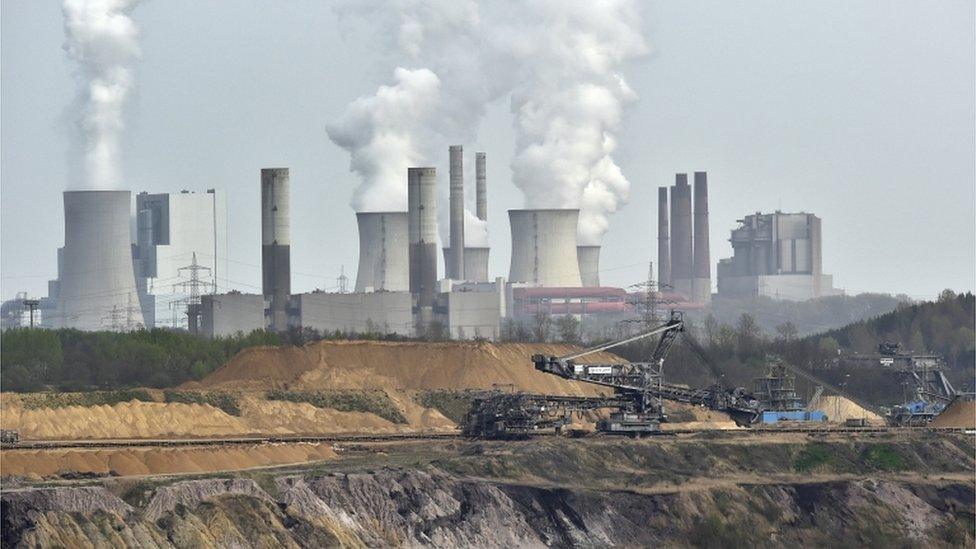
Only seven years ago, the very idea that an international climate agreement would come into force today looked hopeless.
In 2009, world leaders met in Copenhagen but got nowhere, external.
I was among the last to leave that summit and delegates were in tears. The glass roof of the conference centre was dark with snow.
But since then, a remarkable set of changes has allowed the Paris Agreement to take shape.
Paris climate deal enters force as focus shifts to action
UN review says carbon plans fall well short of climate goals
For a start, the world's two biggest emitters of greenhouse gases, China and US, jointly decided to make a serious push.
For President Obama, this has always been a priority. And for China the new middle class is demanding an end to the toxic pollution smothering the biggest cities.
And that's spurred another shift: renewable energy is falling in price.
Out in the deserts of western China, along the ancient Silk Road, I've seen for myself new forests of wind turbines. Recently, China has planted two of them every hour.
David Shukman watches one of China's giant wind farms take shape
The Chinese push for renewable energy is the largest the world has ever seen. And look at the global figure for solar panels installed last year - it was half a million every day.
A third big change is the involvement of leading companies.
A decade ago, it was rare for me to get a corporate press release making a green boast. Now my inbox is bursting with them.
On Friday, 10 oil companies announced a one-billion-dollar fund for low-carbon technology - something inconceivable not long ago but, let's be clear, the sum is dwarfed by the money spent developing new sources of oil.
So will the Paris Agreement get anywhere? On the one hand, it doesn't oblige any government to cut their greenhouse gases.
But, on the other, each country's efforts will be scrutinised every five years.
And although the agreement has no teeth, it does represent something unique: the first time that every nation on the planet has signed up to try to head off the worst effects of global warming.

Key points of the Paris Agreement:
To ensure greenhouse gas emissions peak as soon as possible and achieve a balance between sources and sinks of greenhouse gases in the second half of this century
To keep global temperature increase "well below" 2C (3.6F) and to pursue efforts to limit it to 1.5C
To review progress every five years
$100bn a year in climate finance for developing countries by 2020, with a commitment to further finance in the future.
- Published4 November 2016
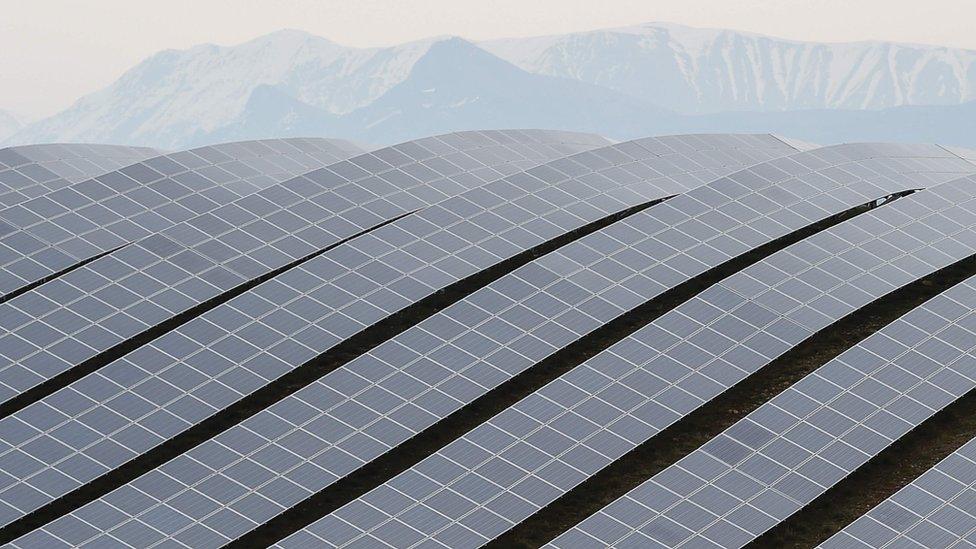
- Published3 November 2016
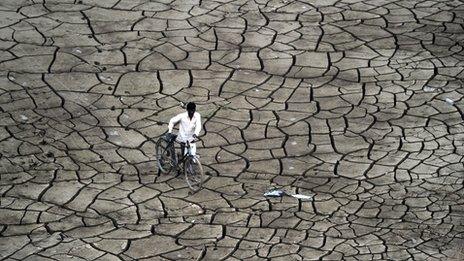
- Published3 September 2016
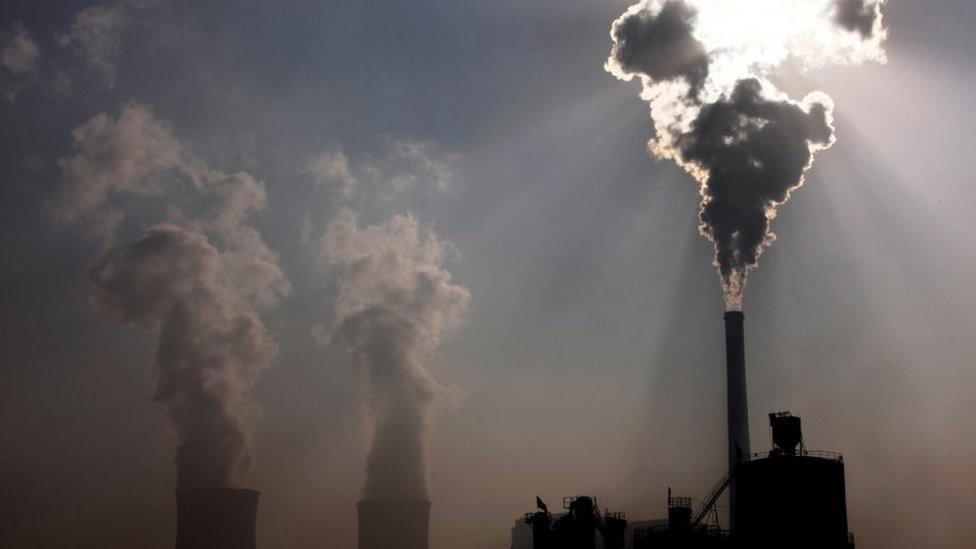
- Published13 December 2015
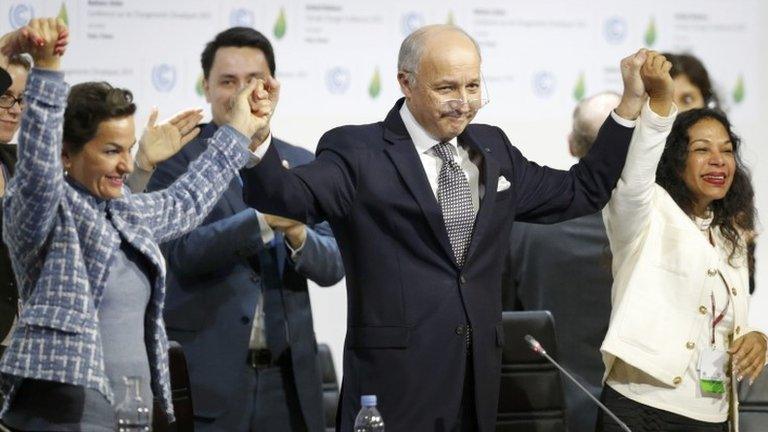
- Published8 January 2014